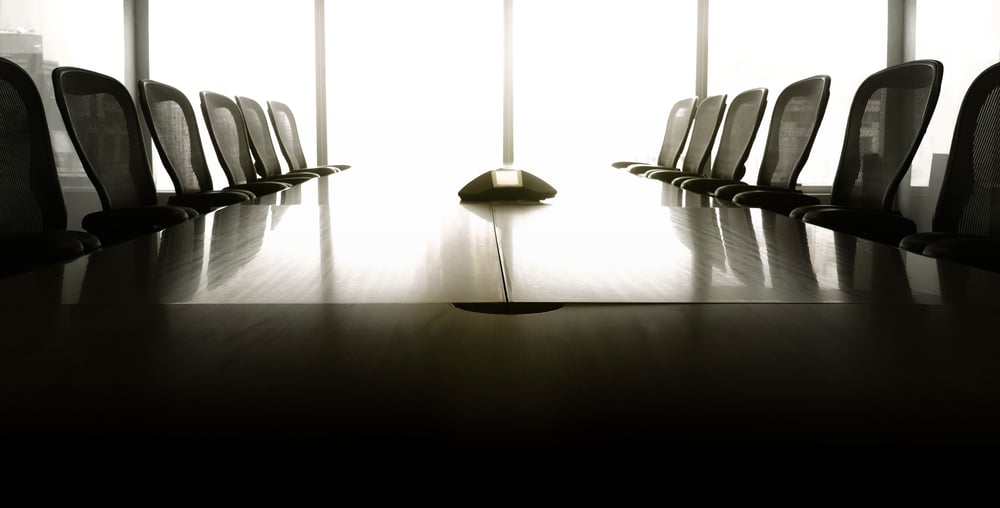The Zoom boom: How videoconferencing tools are changing the legal profession

Image from Shutterstock.com.
Long before social distancing entered the global lexicon, Zoom, the videoconferencing platform, touted its capabilities for lawyers.
In a 2015 blog post, the company suggested its platform could be used for remote depositions, a range of meetings and mediation, among other uses.
That post now also emphasizes its encryption capabilities. That’s because without encryption, users could be exposed to hacking and what’s become known as Zoom bombing.
That the company felt it necessary to do so represented an acknowledge of the new COVID-19 reality. Zoom is booming, with a reported jump from 10 million daily users at the end of 2019 to 200 million in March. Its stock price has more than doubled since the start of 2020, going from nearly $70 at the beginning of January to just over $200 as of June 1.
But lawyers must be extra careful when using Zoom or any other videoconferencing tool.
According to a memo from Freshfields Bruckhaus Deringer, there’s no “inherent problem with Zoom or any other particular product—the problem is simply that these products are being used on a scale that’s unprecedented, in new contexts, and potentially before companies are ready for them.”
As Timothy Harkness, a partner at the firm’s New York office and one of the memo’s authors, tells the ABA Journal, “people have had videoconferencing in their firms and companies for more than a decade, but I have done more in the last month than in the five years before that.”
Broadly, an overarching concern with attorneys’ working from home applies to all digital communications: Reliance on home computers often uses internet security that pales in comparison to the protections built into professional telecommunications.
According to experts, there is a greater risk of user errors and phishing than cyberattacks. Additionally, lawyers may have roommates or family members sheltering in place with them who may not know—or may not care—about the confidentiality of conversations or documents, whether in digital or analog form.
“While the current circumstances are incredibly trying, it doesn’t change the conversation. Lawyers need to work within the constraints of the rules. It’s easy to comply in the office, but the rules are harder to apply in a work-from-home setting,” says Anthony Davis, an ethics expert who is of counsel at Clyde & Co in New York.
But videoconferencing raises specific ethical concerns for attorneys—confidentiality, of course, since it is a cornerstone of professional responsibility, but also issues of privacy and security, technical competence and the proper supervision of junior lawyers, says Devika Kewalramani, a partner at Moses & Singer in New York.
While there is no specific rule governing ethical obligations under the Model Rules of Professional Responsibility when using videoconferencing, she says, three existing rules come into play: Rule 1.1, the duty to provide competent representation, including the use of technology; Rule 1.6, which requires attorneys to keep client information confidential; and Rule 5.1, which imposes a supervisory duty on partners and management-level lawyers to ensure lawyers in a firm adhere to the rules of professional responsibility.
 Image from Shutterstock.com.
Image from Shutterstock.com.
Compliance should be straightforward. “We tell lawyers that it’s best to use a service that your firm has verified as safe. You need to have password protection or PINs for whoever enters the conference, and you must remind everyone that the conversation is confidential. Don’t record and don’t exhibit documents; use another method, like secure encrypted email, to share documents,” says Davis, who also teaches at Columbia Law School.
There are other important considerations. Hosts of video calls should be aware of who is in the virtual room, explains Behnam Dayanim, a partner in the Washington, D.C., office of Paul Hastings. Some permit the host to lock the conference after it has begun, but if the platform does not, it is important to “keep track so that no one is lurking unannounced. It’s important to overcome the abashedness of asking everyone in the room to identify themselves,” he said.
Recording is controversial. It is easy to accomplish on many videoconferencing platforms, yet it could lead to ethical complaints if the opposing lawyers were not consulted, and more important, could be easily copied, breaching attorney-client confidences.
But apart from important privacy and confidentiality, different practice areas raise distinct concerns when it comes to videoconferencing, whether via Zoom or Cisco WebEx or Microsoft Teams or a host of other platforms and services.
For example, arbitrations and mediations are well suited for videoconferencing, says Gail Andler, a retired judge who is now an arbitrator and mediator with JAMS, which conducts alternative dispute resolution, in Irvine, California. To ensure confidentiality, she says it is “important to have an agreement in writing that will not only specify which remote platform will be used but will also include an agreement about the ground rules.”
Those might include the proscription that no one else will be in the room while a witness is testifying and that the attorney will refrain from communicating with that witness during testimony. “If there’s a high degree of suspicion, ask the witness to slide back from the laptop or scan the room entirely,” Andler adds, so there’s a fuller view.
Regulatory matters, particularly those involving individual enforcement, can involve the substantive and the technical, as well as softer, emotional issues. According to Dixie Johnson, a partner at King & Spalding in Washington, D.C., who specializes in securities enforcement, basic questions such as the strength of the internet and whether a witness can see documents are critical in the use of videoconferencing.
Also important: the presence of sufficient devices should lawyer-witness communication be needed during breaks. “You not only have to think about the facts and law involved but how you can be most attuned with what the witness is feeling and experiencing, which is especially challenging if you are remote.”
Intellectual property matters, says Joseph Loy, a partner in the New York office of Kirkland & Ellis, already depend on technology for hearings and trials. “Courts that are IP heavy, such as the Northern District of California and the federal courts in several districts in Texas, are rapidly adjusting to the new abnormal.” They are accustomed to visual aids in the courtroom and understand how those might translate to a virtual room, including the use of electronic white boards and displays that involve motion graphics.
“There can be technical glitches, which is no different than what happens in court, where we typically have a paper backup,” he says.
A thornier question, Loy notes, is the examination of source code—often integral to many IP cases—when travel is restricted. While he hasn’t tried it yet, he says, “we could use a videoconference to remotely examine a device at the instruction of an expert.”
Court hearings and oral arguments can be accomplished remotely, many say, although jury trials, whether civil or criminal, would present special challenges that may eclipse the ability to use videoconferencing.
The federal Coronavirus Aid, Relief and Economic Security Act, known as the CARES Act, included one provision, Section 15002, that expands the types of criminal proceedings that may be held remotely, says U.S. District Judge P. Kevin Castel of the Southern District of New York. He adds electronic filing, a stalwart in the federal courts, has remained operational through the health crisis.
Criminal trials are, however, another matter, because of the need to convene a jury.
“The challenges of social distancing will come into play and could cause criminal trials to await reopening,” Castel says.
Ultimately, questions have arisen with every new technology, explains Stephen Gillers, an ethics expert and professor at New York University School of Law.
“It happened with the telephone, and it happened with emails. Lawyers worry about how we can use it consistent with our professional obligations,” he says. “It’s just like old wine in new bottles.”



